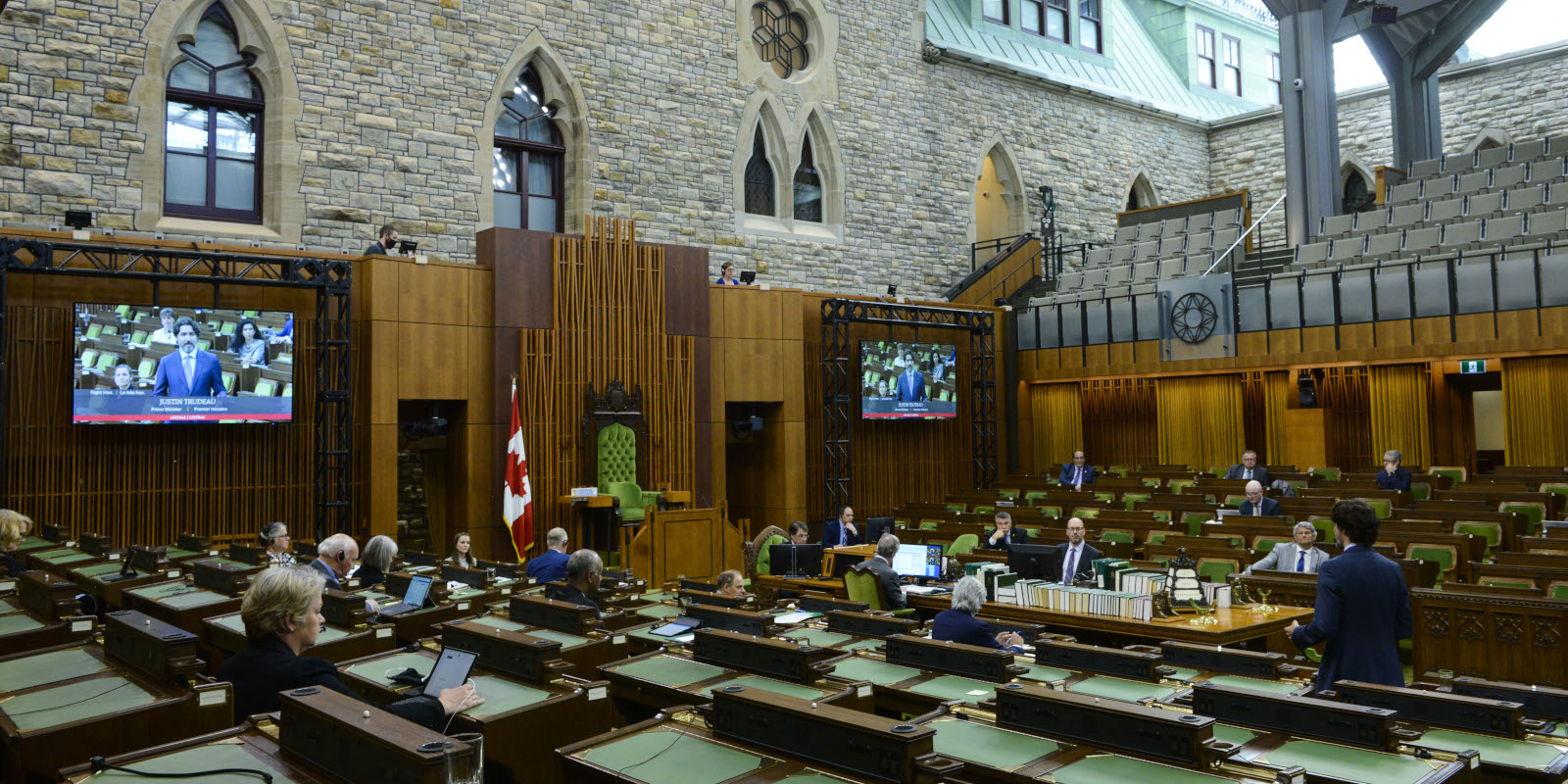The vast majority of Canadians have returned to the office after the COVID-19 pandemic pushed many workers back into their homes and onto interminable Zoom calls.
Polling shows a deep divide among Canadians about returning to the office and a similar debate has broken out among the country’s members of Parliament, who will be conducting another year of hybrid proceedings, with some members in-person and others appearing virtually.
Even Canada’s political scientists are split on what this means for the health of our democracy.
“Parliament must not only work, it must be seen to work for Canadians to understand what government does and why it’s important,” said Kathy L. Brock, a professor of political studies at Queen’s University, at a meeting of the Procedure and House Affairs committee on Thursday.
“It’s when the legislature is in operation, when there’s accountability, that you get transparency and government seems to work better and people believe their views are being heard,” said Brock.
Two University of Calgary political scientists, appearing virtually, argued that the benefits of better representation in Parliament outweighed the downsides.
“We know from decades of research that it is disproportionately women who are systematically selecting out,” said Melanee Thomas, a professor of political science at the University of Calgary.
“When it comes to parliamentary debate, providing you the option to participate remotely ensures that members of Parliaments’ voices are heard, and their constituents can be represented even when the MP is unable to be physically present in Ottawa due to illness, caregiving responsibilities or whatever else might arise,” said Thomas.
Erica Rayment, who is also a professor of political science at the University of Calgary, said that because she is 39 weeks pregnant, the issue is salient for her.
“It would not have been an option for me to come to Ottawa. No airline would let me step onto an airplane at this present time,” said Rayment.
“So if that were the case, if the only way for me to have participated were to have been in person then I would not have had the opportunity to participate,” she said.
With the decision to carry on with a hybrid Parliament, the Canadian House of Commons is quickly becoming an outlier, with Canada’s major provinces moving back to in-person sittings and most Western parliamentary democracies also following suit.
For some, this is a good thing, opening up the job of MP to people who would otherwise decline to endure the vagaries of political life which, for some members, could include long stretches away from home and long flights every couple of weeks. For others, like Conservative MP Michael Chong, it lets the government away with less accountability, allowing ministers to hide behind computer screens during question period and read prepared remarks, rather than engaging directly with an opposition critic.
“The current system of hybrid sittings does two things. It makes Parliament much less efficient. It takes a lot longer to get things done, and the second thing is it significantly reduces the accountability of the government to the House,” said Chong, in a recent interview with The Hub.
At Thursday’s committee, Liberal MP Ruby Sahota argued that although hybrid Parliament has shortcomings, it does allow ministers to take part in House proceedings and question period when they are travelling. Previously, they wouldn’t have been able to do so.
Conservative MP Brad Vis complained that the virtual proceedings made it easier for the government to marginalize its backbenchers and simply allow a few MPs to dominate House of Commons debate.
Thomas said she questioned the premise that a virtual Parliament automatically means less accountability and pointed out that working virtually was simply an option for MPs, not something that would happen permanently.
Brock argued that the raucous exchanges that typically happen during an in-person question period may actually benefit the government.
“I believe that when ministers answer with notes or resort to paper and perhaps don’t consider people’s reactions, or the body language that you get, there can often be an inhibiting of the exchange between parliamentarians,” said Brock.
Brock argued that a strong reaction from the opposition in the House can be valuable intelligence for a government, especially in a minority Parliament, and may even lead to amendments to policies.
“This is a question of how Parliament functions, and what people learn from each other,” said Brock.
Recommended for You

‘Our role is to ask uncomfortable questions’: The Full Press on why transgender issues are the third rail of Canadian journalism

Need to Know: Mark Carney’s digital services tax disaster

Theo Argitis: Carney is dismantling Trudeau’s tax legacy. How will he pay for his plan?

Kirk LaPointe: B.C.’s ferry fiasco is a perfectly Canadian controversy



